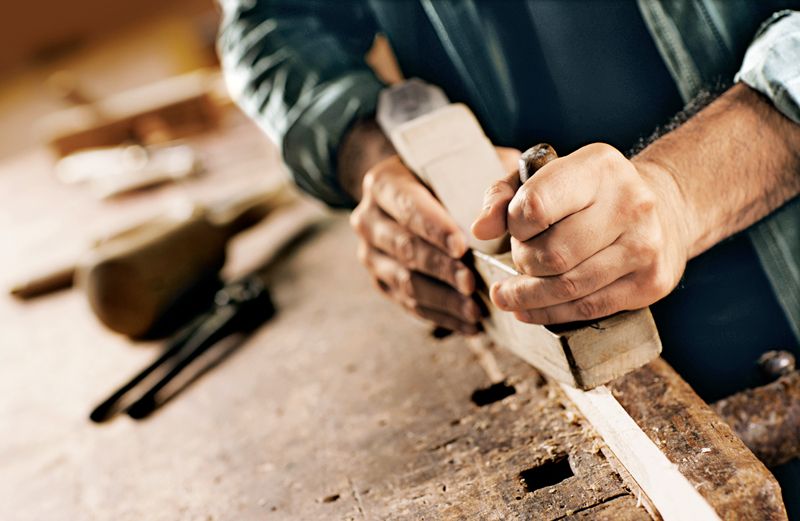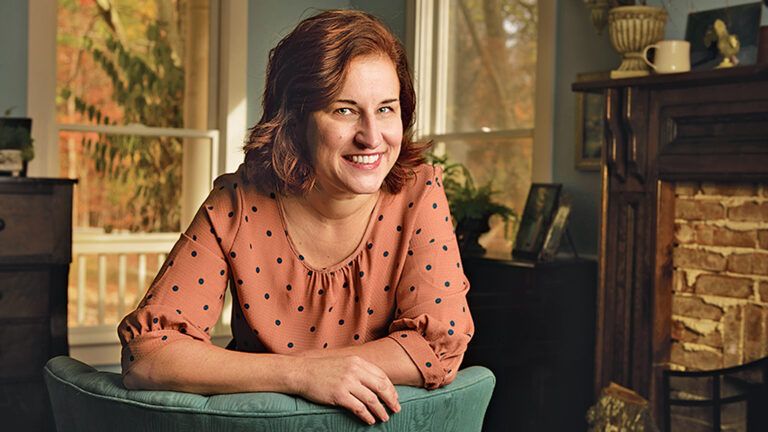My father came from a long line of carpenters and cabinetmakers but didn’t quite have their knack. Not that he realized it. He was of the generation that reused everything.
He’d turn old newel posts into a wobbly hat rack or parts of an antique walnut bed into a crooked shelf. He gave all his creations away, and no one had the heart to turn him down.
I still have the curio cabinet he made for me when I turned 11, the year he forgot my birthday.
The black and gold paint is chipped and the drawer pull—taken from a child’s umbrella—is cracked, but I have kept that cabinet on the wall of my laundry room for years to remind me of an important lesson.
I was a big reader, and for my birthday my aunt Nellie Baker gave me a half-dollar, knowing what I’d do with it. It took some of the sting out of the fact that my father had forgotten my special day. I headed straight to the bookstore to buy the latest Nancy Drew hardback for 48 cents. A brand-new book of my very own! How exciting! But when Dad saw me reading it, he hit the ceiling.
“My word, girl,” he exclaimed, “you can get all the books you want at the library for free. Why’d you spend your money so foolishly? Do you think it grows on trees?”
Well, the library didn’t have the latest Nancy Drew and besides, it was my money for my birthday. Why couldn’t I do what I wanted with it? Dad was a bookworm too. Of all people he should have understood.
I knew our money situation was tight (it always was), but he hadn’t given me anything. He hadn’t even remembered my birthday. I was so hurt I burst into tears.
Dad looked stricken. He didn’t say a thing, not a word, but tromped down to the basement. He spent the next three evenings holed up in his workshop, making his usual hammering and sawing noises.
It was just as well. I was too upset to talk to him. I could barely bring myself to include him in my bedtime prayers.
Then, on the fourth evening, I was sitting at the kitchen table, doing my homework, when he came up from the basement. He set something down on the table and stood there for the longest time.
I ignored him. He cleared his throat. I looked up, then peered at the object on the table. A curio cabinet, freshly painted black and gold. It was ill-proportioned, the shelves lopsided, the drawer uneven, but I knew it had taken a lot of work. And a lot of love.
I looked at Dad and read the message in his intense blue eyes: I’m sorry, kid. I’ve been worrying about a lot of things and I didn’t mean to take it out on you. I wanted to apologize too, for all my pouting.
“Happy Birthday, Millie,” he said.
“Thank you, Daddy,” I said. “I really needed a shelf like that to put my books on.” Then I threw my arms around him and hugged him tight for a long time.
It might sound strange coming from a bookworm—a person who values language—but sometimes the best way to tell someone you’re sorry isn’t necessarily with words.
Download your FREE ebook, Paths to Happiness: 7 Real Life Stories of Personal Growth, Self-Improvement and Positive Change




